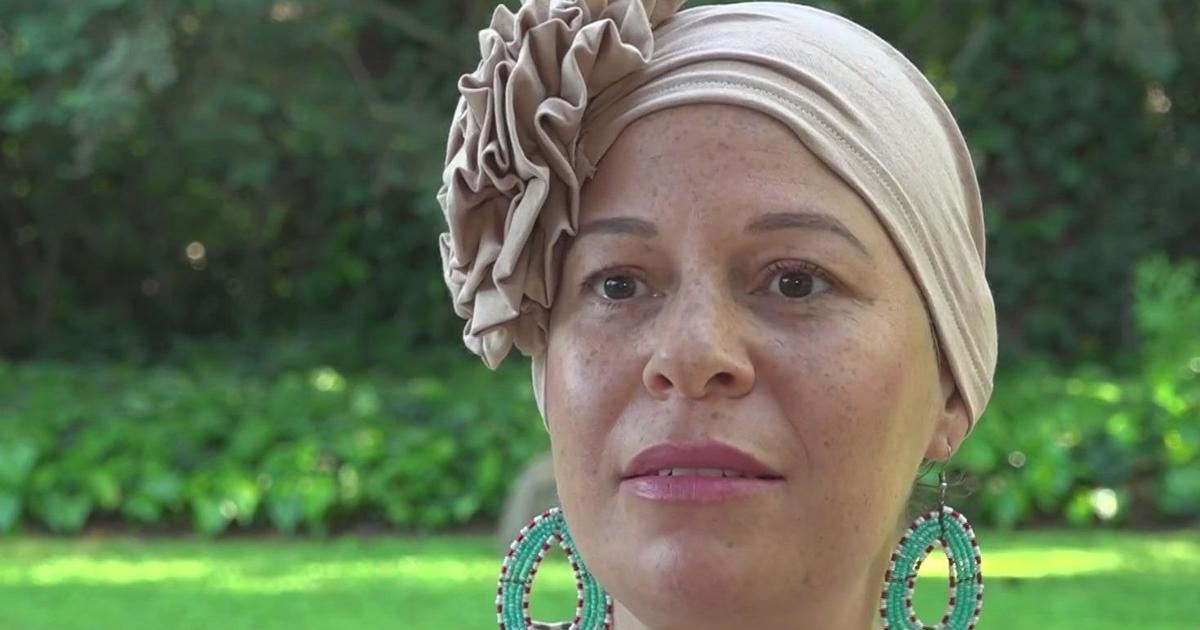When To Screen For Autism? New Study Suggests As Young As 14 Months
(CNN) -- When screening for autism spectrum disorder, a new study suggests that children can be reliably diagnosed with autism at an age earlier than what is currently recommended.
Current recommendations are for children to be screened specifically for autism spectrum disorder during regular doctor visits at 18 and 24 months old.
Yet new data suggest that autism detection and diagnosis can start as young as 14 months old with high accuracy, which could lead to children with autism having the option to start therapies early, according to the study published in the medical journal JAMA Pediatrics on Monday.
"This opens up really unprecedented opportunity to get them into early treatment -- potentially early intensive treatment -- and then check to see what kind of impact this is having by the time they reach school age," said Karen Pierce, a professor of neuroscience and co-director of the Autism Center of Excellence at the University of California, San Diego, who was first author of the new study.
"The brain is very plastic during early development and can be impacted by input from the environment," she said. "The frontal cortex in particular -- the part of the brain essential for the development of social skills -- is making large numbers of connections between brain cells across the first two years of life."
Historically, children with autism normally don't even start their treatment until age 3 or 4, after a lot of that wiring has already happened, she said.
The American Academy of Pediatrics has recommended that all children be screened for autism spectrum disorder at ages 18 and 24 months in conjunction with ongoing developmental screening. That recommendation was made in 2015.
In 2016, the US Preventive Services Task Force concluded that the current body of evidence remains insufficient to assess the balance of benefits and harms of screening for autism spectrum disorder in young children who have no signs or symptoms raised by their parents or clinician. The task force is an independent group of national experts in medicine who make recommendations that affect clinical practice.
The benefits of screening early
The study involved 1,269 toddlers who were screened for autism spectrum disorder and general developmental delay during doctor visits between 2006 and 2018. If a toddler failed the screening form, they were referred for a comprehensive evaluation. After each evaluation visit, psychologists filled out a diagnostic judgment form about each child and entered it into a database.
The toddlers received their first diagnostic evaluation between the ages of 12 and 36 months old, and were followed up with through at least one subsequent evaluation.
The study included more than 3,000 evaluation visits among the toddlers.
The researchers took a close look at how accurate and stable the diagnoses were among the toddlers over time. For instance, toddlers who were not diagnosed with autism at their first visit but were at their last were designated as having "late-identified" autism.
Among the toddlers, an initial autism diagnosis, especially when screening started around 14 months old, was more stable than any other diagnosis, including typical development, the researchers wrote.
Overall, the data showed that 84% of toddlers in the study who were initially diagnosed with autism at their first doctor visit retained this diagnosis by the time they turned 3 or 4.
Additionally, the researchers found that 23.8% of the toddlers who were diagnosed with autism in an evaluation at 3 to 4 years old initially had their autism diagnosis missed in their first evaluation visit.
The study had some limitations, including that the practitioners performing the evaluations were not blinded to whether the toddlers had previous diagnoses.
Looking ahead, the researches plan to conduct a follow-up study to see what the outcomes are among the children who were diagnosed early in the current study.
"We have a new grant out that's under review right now to see if we can call all these kids back from the JAMA Pediatrics paper when they get to school age, and test them all over again to see what their outcomes are, because it's really vital -- that's the whole point of doing all this," Pierce said.
The new study findings came as no surprise to Michael Morrier, an assistant professor and program director of screening and assessment at the Emory Autism Center at Emory University School of Medicine in Atlanta, who was not involved in the study.
He said that among practitioners it has long been realized that you can and should diagnose autism spectrum disorder at younger ages.
"The biggest benefit to diagnosing young is really two-fold. One would be preventing challenging behaviors," he said.
Some of those behaviors might be when a child bangs his or her head against a table to get the attention of others, or isolates themselves from other people. Those types of behaviors typically develop over time.
"It's because they've learned over time if I'm not communicating and I start banging my head, that gets a reaction," Morrier said.
So by diagnosing early, "we're going to probably prevent a lot of those types of behaviors from starting," he said. Secondly, for families, "we can give them the skills and give the child the skills needed so that they can feel supported in going out into the community and having real social experiences that all young kids should have."
'My son was diagnosed'
Thomas Frazier, chief science officer for the autism advocacy group Autism Speaks, called the new study "very strong" and the study's interpretation that autism can be detected at younger ages as "appropriate."
As the father of a 15-year-old boy who is on the autistic spectrum, Frazier knows the importance of reliable screening all too well -- and how that can lead to intervention efforts and therapies sooner than later.
"My son was diagnosed right before his second birthday. It was a challenging time because we knew that we needed to figure out how to help him and get him the interventions he needed, which are not always easy to get," said Frazier, who was not involved in the study.
"There is compelling data from many studies that early intensive behavioral intervention is effective. Many children who receive early intensive behavioral intervention show substantial improvements in cognitive function, language and daily living skills as well as reductions in autism symptoms," he said. "There is also some data that suggests that starting treatment earlier improves outcomes."
The-CNN-Wire
™ & © 2019 Cable News Network, Inc., a Time Warner Company. All rights reserved.



